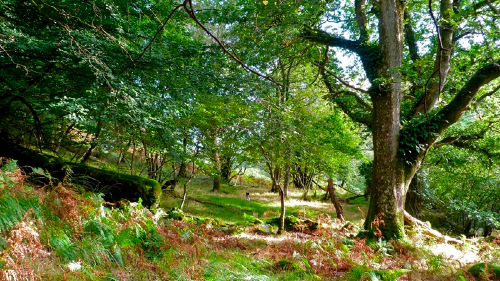We have reached a crossroads. Do we turn left or right and base policy purely from either an economic or an environmental viewpoint?
Do we continue and fully embrace the coming together of all strands of land management, which seemed finally to get close to a common understanding of the problems and their cause and thus a solution on the horizon?
Or do we take what is on offer from the government, a regression back to outdated politics and using the opinion of dead economists, trying once again to realise ideals, which have been proven to fail?
The desire to simplify planning by way of the NPPF consultation has been its own undoing. It is simply far too simplified. We clearly need more houses to fill a void for particular social groups. We clearly need an NPPF, an umbrella policy document that is understandable by all. And what we clearly need is a platform which allows all interests full access to discussion and debate with regards planning, particularly when it is to be addressed from a bottom up approach.
The debate over the NPPF provides good copy for newspapers. The language used between pro and anti NPPF camps is harsh and makes the ‘Forest Sell Off’ campaign look gentlemanly.
However the facts involved in the debate remain insular, failing to gain the average persons attention let alone comprehension. The only concession to this being by way of the National Trust; hence why they have gained so much support together with targeted anger from government ministers which has not been seen with such vehemence since the battles of ideals in Georgian times.
Both the NPPF and PFE disposal policies have highlighted a very modern problem: The progression of thinking towards conserving our landscapes, recognising their multi functional capabilities and most particularly the importance of the biodiversity contained within them has been slow in implementation outside of designated areas. It has been the domain of NGOs & Quangos liaising with a new landowning class with a new ideal, the preservation of specific landscapes to maintain the investment that is their purchased property.
The neglect of our ordinary landscapes was the fault of all those who presided over our country, city and garden scapes up till the present moment in time.
And in the case of the NPPF it must not be forgotten that it is the planners who maintain the balance between developers and conservationists. Just as it is the foresters who maintain the balance between forest users, timber trade and conservationists in England’s forests.
When suddenly radical policies are placed on the table, based on progressing localism and thus extolling a ‘bottom up’ approach, those at the bottom must be able to understand the implications of the policies. This at present is very difficult indeed, because the top down approach is so well entrenched.
Social media plays a huge role in aiding those with an interest to decipher what is going on, but it also quickly highlights a huge problem; that the experts and policy makers from different branches of land management speak a different language. This is perpetuated by governmental departments failing to understand each other –thus policies and publications from one department have little relevance and are accordingly ignored by other departments.
We need a dictionary of definitions or a glossary of terms used.
What is a ‘Place’? What is a ‘Landscape’? What is ‘Sustainable’? What is ‘Sustainable Development’?
Without tools to aid the general populace to reach a rational decision, or an illustration that government, NGOs and other experts are talking the same language, we will forever be stuck in a mire of ‘green washed’ terminology.
And therefore;
We will never be able to sit around a table, with all interests represented, and discuss a future which can see the ideals we need actually implemented.
Both the NPPF and Forest Sell Off have offered a chance to progress, but at present we are at risk of not even seeing the reinvention of the wheel but instead several differing viewpoints as to what a wheel actually is.
Pip Howard Sustainable land manager


























